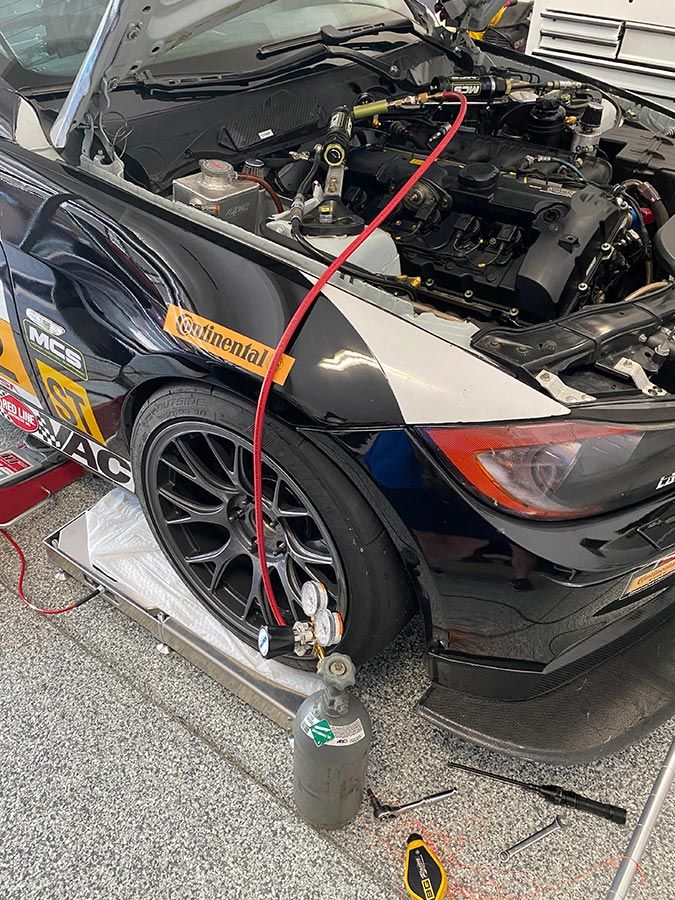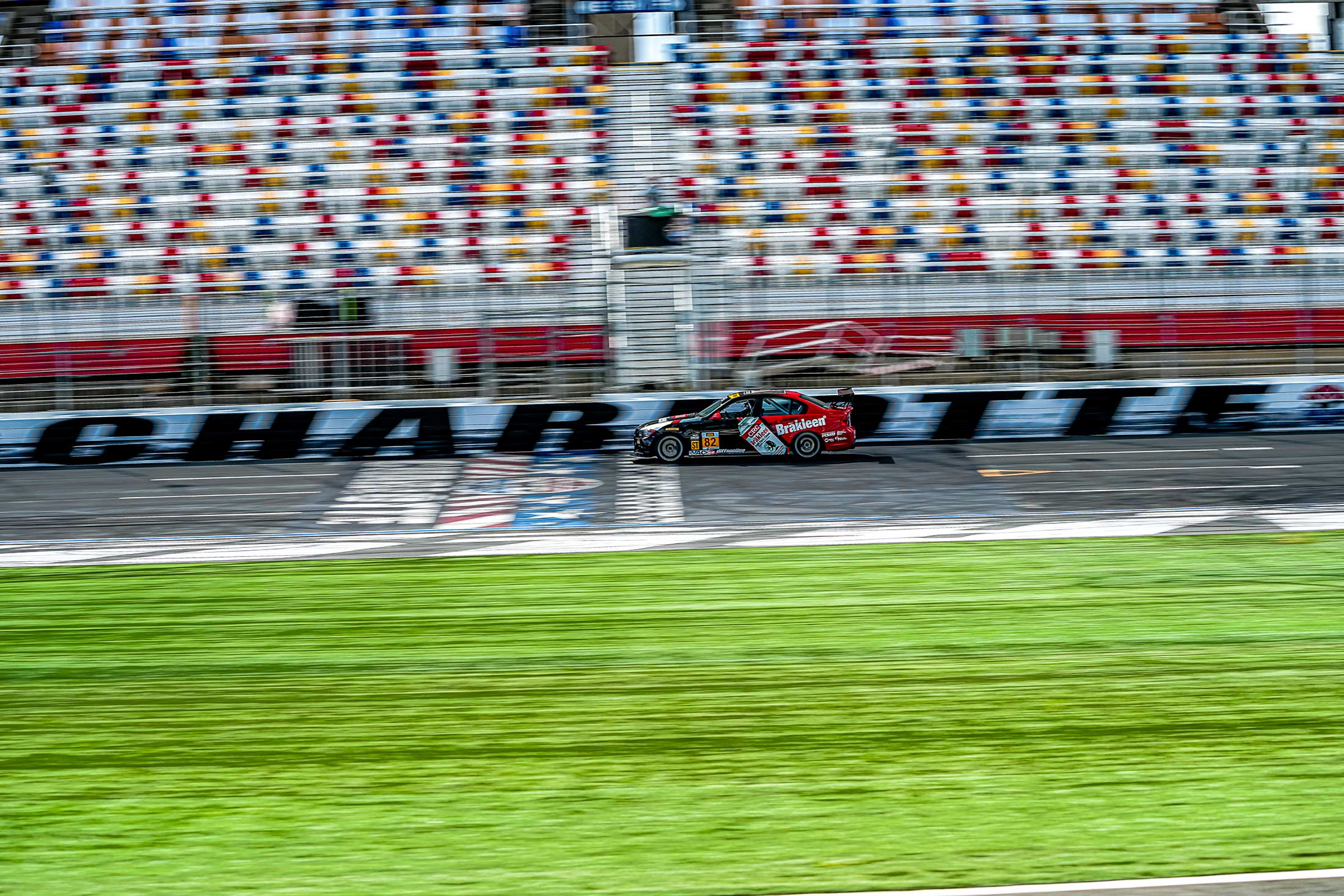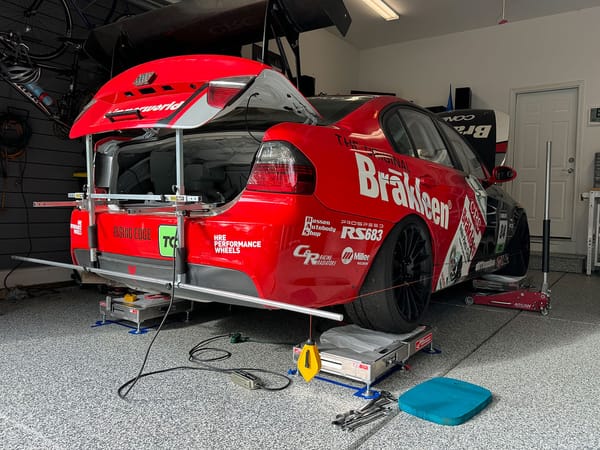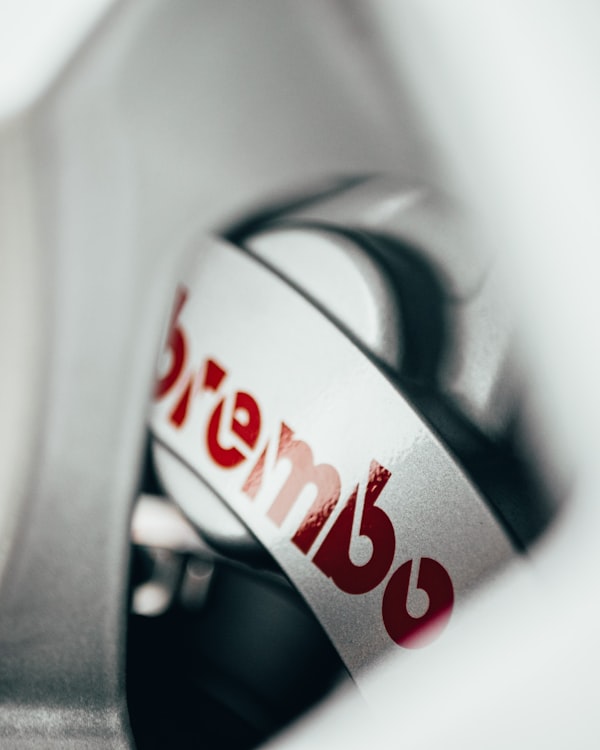We're back! Thank you to those that took our year two survey. Congrats to Doug for winning the drawing for the $75 Condor Speed Shop gift card! Our weekly article schedule on Thursdays is resuming after a much-needed month off.
Frequently I will come across a vague setup advice question along the lines of:
My E36 understeers. How much front camber should I run?
A question like this is needlessly restrictive (why camber?) and hard to answer accurately. There are so many missing variables, such as:
- When the car understeers (entry, mid, exit)
- What setup is on the car now
- Details about the tires (compound, pressures, heat cycles)
- What track, and what corner
- The driver's skill level
- What they've tried so far to fix the issue
Predictably, everyone wants to sound smart by sharing their two cents, so these types of posts usually get a lot of replies.
Some of the advice given might actually be pretty good, but without knowing the whole picture (or at least 80% of it), the advice could be completely wrong. Additionally, odds are that the person asking the question already knows what change they are going to make, and they are just seeking confirmation bias.

How To Ask Better Questions
The internet isn't usually the best place to ask a question like this. You certainly can receive valid and good advice from a forum or Facebook Group, but, and it's an important but: you really have no idea who is giving the advice, and if you should trust their opinion or not. Damn, the same could be said about a lot of topics.
Who should you ask?
Any friend that is perhaps faster, more experienced, or more knowledgeable than yourself would be a good starting point. You probably already have a good perspective on that person's strengths and weaknesses, and can weigh their input accordingly.
The ideal person will look at the question holistically, because sometimes the car needs a setup change (race engineering), but just as often the driver is the thing that needs to change (coaching). For the scope of this article, we are going to stick with the setup side of things, as coaching is a whole 'nother topic.
What if...?
You aren't at the track, or don't know anybody there? A good starting place would be the officials or instructors with the track group(s) that you run with. They might not have an answer, but they can point you in the direction of someone that does.
Another good option would be a series leader or a top racer that runs a similar car to yours. Setup theory doesn't differ from car to car, but specific advise is best served from someone well versed on your chassis. It's probably not the best idea to ask an American Iron driver how to set up a Spec E30.

How do you ask?
Do your best to describe the issue in detail, using the framework we mentioned above (when it's happening, setup and tire details, what kind of inputs you are making when the issue occurs). Be careful not to interject your own ideas or conclusions just yet.
This is not going to be a quick hi-and-bye conversation, but you should be able to describe the issue, answer any follow up questions they have, then absorb their suggestions within about 5 minutes or so, realistically.
Putting it to use:
You might end up asking two or three different people, and it is definitely possible that you will get different or conflicting answers. If you find yourself in that situation, go with your gut. The worst case is that you make the car... worse, and you learn the lesson that "sometimes, the opposite is true." Then you can un-do the change and go in the opposite direction for the next session.
How To Give Better Advice
I try to refrain from giving any specific setup advice to people unless I know most of the picture.
Even for the few people that trust my advice enough to seek it out, I try to ask a lot of questions to truly understand the issue and where the car’s setup currently stands before I offer a few ideas that I think would help improve the car.
After hearing out their situation, usually two or three different changes spring to my mind. Some may be easier to apply than others. There are usually side effects to each change, so the options need to be explained in a way that the recipient can choose the one they think will mesh best with their overall setup and desired goal.

Remember that whatever you're doing on your car may not be the best for somebody else's. Certain aspects of your setup may not play well on another chassis, and more importantly they may not suit their driving style.
Don't just disappear after dishing out advice. Seek out the driver and ask them how the change worked. Hopefully it helped, and if it didn't, apologize and chock it up as a lesson learned for both of you.
Experiment and Have Fun
Remember that even a great car can be improved upon, and it can be a fun process to experiment and continue to iterate on your car's setup. We rarely drive in the same conditions over and over. Tracks change, cars change, tires change – constantly. We can't keep our setups static forever.
I used to dread making changes at the track. I would hem and haw over making the right choice, and I would fear that the change would be too effective. I've found over time that most changes end up relatively minor, and by the time I am happy with the car, I will have made two, three, four, maybe even five changes along the way to get the car where I want it to be.
Those changes used to take me months if not years to achieve. Now, with the help of others I trust, I can knock out those changes in a weekend or two. My confidence in the car and my lap times are much better because of it.
Bonus: Do you have cool friends that you would trust to drive your car for a session? Tell them to hop in and assess it for themselves. Have them provide the feedback to you as if they are setting the car up for you, and not based on their own quirks and preferences. Maybe they'll let you drive their car so you can see what it's capable of. And maybe you'll be able to help them improve, too!









